Hezbollah Fighters Injured in Lebanon by Exploding Devices: Unprecedented Escalation in Middle East Tensions
The Middle East conflict took a disturbing turn as an unprecedented event unfolded across Lebanon. Hundreds of Hezbollah fighters were injured by exploding communication devices in what has been described as an orchestrated hostile act. The explosions occurred almost simultaneously, targeting Hezbollah’s pagers, a tool that had replaced mobile phones for security reasons amidst the ongoing Gaza conflict. This incident, which has injured civilians and military personnel alike, adds to an already volatile situation in the region.
Overview of the Incident
According to multiple reports, Hezbollah’s pagers were hacked, possibly by Israel, leading to detonations across several locations, including Beirut and southern Lebanon. Videos circulating online show the aftermath of the explosions, with people fleeing the scene and ambulances rushing to the southern suburbs, a Hezbollah stronghold.
Lebanon’s Health Ministry has urgently requested medical personnel to report to hospitals and called on citizens to donate blood to help treat the wounded. Though many victims sustained non-fatal injuries, the scale of the attack sent shockwaves through the region.
The Role of Hezbollah in the Middle East Conflict
Hezbollah is a key player in the broader Middle East conflict, especially in its opposition to Israel. The organization, regarded as a powerful non-state actor, has amassed a significant arsenal over the years, including rockets, drones, and other weapons. In the wake of the Gaza War, Hezbollah’s leadership issued orders for its members to abandon mobile phones in favor of pagers to avoid sabotage, a strategy that backfired with devastating consequences in this latest incident.
The decision to use pagers stems from the historical assassination of Yahya Ayyash, a Hamas bomb-maker, by an Israeli intelligence operation involving an exploding mobile phone in 1996. Hezbollah’s attempt to prevent similar attacks has tragically led to a mass injury event.
The Escalating Conflict Between Hezbollah and Israel
The explosion of pagers is just the latest in a series of escalations between Hezbollah and Israel. In recent weeks, Israel has extended its military objectives, now focusing on expelling Hezbollah from the border region shared with Lebanon. Israeli officials have pushed to move Hezbollah north of the Litani River, which was designated as a boundary at the end of the 2006 war between the two sides.
Hezbollah’s presence near the Israeli border has caused increasing tensions, leading to sporadic clashes and rocket fire. The group has also played a significant role in the displacement of around 60,000 Israelis from the northern border region. Israeli cabinet ministers are now under pressure to address the Hezbollah threat, with many calling for more decisive military action.
Israel’s Potential Role in the Attack
Though Israel has not officially commented on the explosions, speculation about its involvement is rife. Security experts believe that Israeli intelligence agencies such as Shin Bet or Mossad could be behind the attack. Israel has a history of carrying out precision operations targeting Hezbollah leaders and infrastructure.
On July 30, Israel admitted to the assassination of a senior Hezbollah commander, Fouad Shakar, in southern Beirut, using a precision drone strike. This was followed by the assassination of Ismail Haniyeh, the political leader of Hamas, in Tehran the next day, an attack that Israel has not officially claimed but is widely believed to be responsible for. These incidents have heightened tensions between Israel and Hezbollah, making it likely that Hezbollah will view the latest pager explosions as an extension of Israel’s ongoing covert war against them.
Reactions from Lebanon and the International Community
In the immediate aftermath of the explosions, Lebanon has been thrown into chaos. Hospitals across Beirut and southern Lebanon are overwhelmed with injured individuals, and the Lebanese government has called for calm amidst fears of further violence. Hezbollah officials have called the pager explosions “the biggest security breach the group has ever faced,” heightening tensions within the organization.
The Iranian ambassador to Lebanon is reported to have been among those injured in the blasts, further complicating the regional political landscape. Iran, a key supporter of Hezbollah, has yet to officially comment on the incident, but it is expected that this event will deepen the military and diplomatic ties between Iran and Hezbollah in the face of Israeli aggression.
Implications for the Broader Middle East Conflict
The fear of a broader conflict between Hezbollah and Israel looms large. While Hezbollah has engaged in sporadic rocket fire against Israeli targets in recent months, the group had previously declared that its score with Israel was “settled for now” following the assassination of Shakar. However, the explosion of pagers and the injury of key Hezbollah members may prompt a renewed wave of retaliation from the group.
This incident comes at a critical time, with Israel already engaged in a military operation against Hamas in Gaza. The possibility of Hezbollah opening a second front against Israel is a major concern for the Israeli government, which has sought to contain the conflict to Gaza. An escalation with Hezbollah could draw Israel into a wider regional war, with devastating consequences for both sides.
What’s Next for Hezbollah and Israel?
In the coming days, much will depend on how Hezbollah chooses to respond to the pager explosions. The organization has vowed revenge in the past for Israeli assassinations and attacks, and it is likely that the group will seek to retaliate against Israeli interests in the region. This could take the form of rocket attacks, targeted strikes, or even cyberattacks similar to the one believed to have caused the pager explosions.
For Israel, the challenge will be to maintain pressure on Hezbollah while avoiding a full-scale war. The Israeli military is already stretched thin by its ongoing operation in Gaza, and a second conflict with Hezbollah could prove to be a costly and protracted engagement.
Conclusion: A Dangerous New Phase in Middle East Tensions
The explosions of Hezbollah’s pagers represent a significant and unprecedented escalation in the ongoing conflict between Israel and Hezbollah. With both sides already engaged in low-level skirmishes, this latest attack has the potential to ignite a much larger and more destructive war. As the situation in Lebanon continues to evolve, the international community must remain vigilant and work to prevent further violence from spiraling out of control.
The coming weeks will be crucial in determining whether this incident marks the beginning of a new and more dangerous phase in the Middle East conflict or whether cooler heads can prevail to de-escalate tensions. However, one thing is clear: the region remains on a knife’s edge, with the potential for widespread violence hanging in the balance.
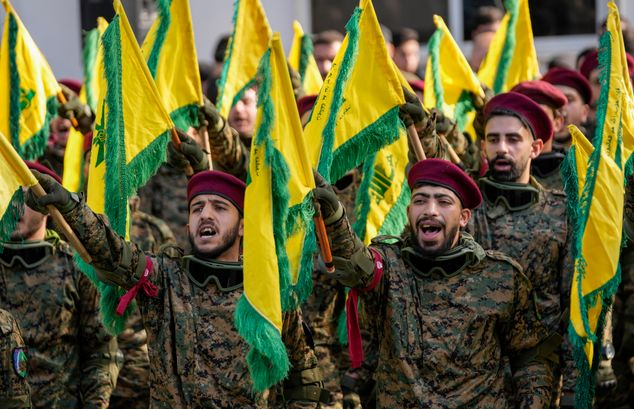


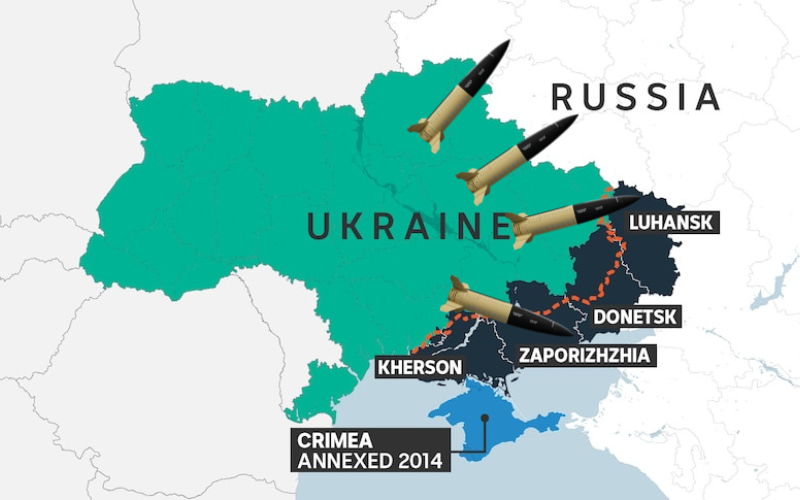
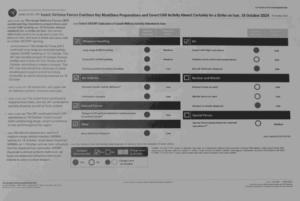
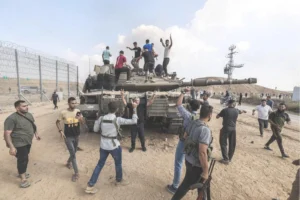

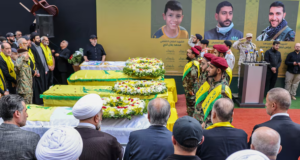
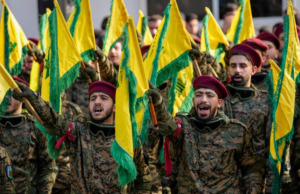

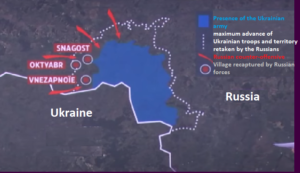



1 comment